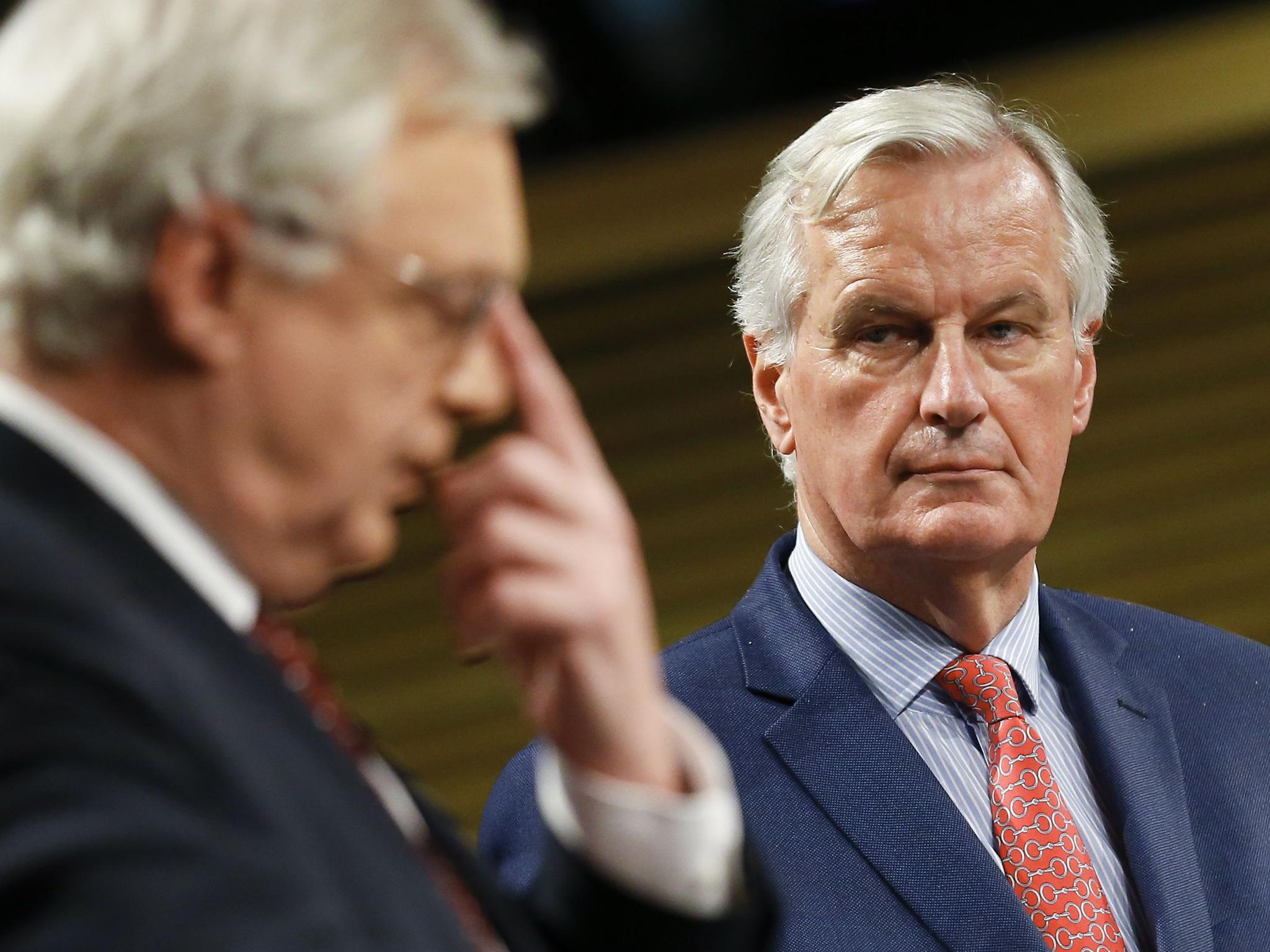Brexit: Chief EU negotiator says the City of London will have 'no place' in trade deal
Michel Barnier said trade deals involving financial services do not exist anywhere in the world

Your support helps us to tell the story
From reproductive rights to climate change to Big Tech, The Independent is on the ground when the story is developing. Whether it's investigating the financials of Elon Musk's pro-Trump PAC or producing our latest documentary, 'The A Word', which shines a light on the American women fighting for reproductive rights, we know how important it is to parse out the facts from the messaging.
At such a critical moment in US history, we need reporters on the ground. Your donation allows us to keep sending journalists to speak to both sides of the story.
The Independent is trusted by Americans across the entire political spectrum. And unlike many other quality news outlets, we choose not to lock Americans out of our reporting and analysis with paywalls. We believe quality journalism should be available to everyone, paid for by those who can afford it.
Your support makes all the difference.The EU’s chief negotiator has warned there will be “no place” for the City of London’s financial services in any Brexit trade deal struck between the UK and the EU.
Michel Barnier argued there is not a trade deal anywhere it the world including financial services, adding, “it doesn’t exist”.
His warning came on the eve of the first full Cabinet discussion of the eventual future relationship with the EU, or “end state”, the UK wants to achieve following Brexit.
Downing Street sources said they were at ease over the tough talk, saying it was early in the negotiation, but Mr Barnier’s words will irritate Brexiteers who want the UK to be tougher with Brussels negotiators.
In an interview with a number of European newspapers, including The Guardian, Mr Barnier made clear he was not open to a free trade agreement including financial services.
He said: “There is no place (for financial services).
“There is not a single trade agreement that is open to financial services. It doesn’t exist.”
Describing the position as a result of “the red lines that the British have chosen themselves”, he stated: “In leaving the single market, they lose the financial services passport.”
The “end state” will also be discussed in full Cabinet on Tuesday, but insiders suggested there would be several more meetings before a formal Government position is finalised in the early weeks of the new year.
Mr Barnier made clear that the EU will respond firmly to any deviation from the framework of single market regulations which might give the UK a competitive advantage through lower taxes or weaker standards.
“We will not accept from the other side, regulatory competition against social rights, against environmental rights, against consumer rights and against fiscal regulations ... or against financial stability,” he said.
In reference to US pressure on the UK to ditch EU food standards in the hope of securing a free trade deal, he said: “We will not accept chlorinated chickens, nor other products that do not meet our food standards.”
He said he believed that a UK/EU free trade deal could be agreed within the two-year transition, but said it would have to be ratified by more than 35 national and regional parliaments across the EU27, each of which holds a veto.
Mr Barnier also reiterated that the UK would have to follow all EU rules during the expected two-year transition period following the official date of Brexit in March 2019, including laws introduced during that time with no British input into decisions.
And he said while Britain can negotiate trade deals with other countries during the transition, they cannot enter into force until the period is over, probably in 2021.
On the day when the Prime Minister told the House of Commons the UK would leave the Common Agricultural Policy and Common Fisheries Policy (CFP) on Brexit, Mr Barnier also insisted that the UK must accept the “complete architecture” of the EU – including the role of the European Court of Justice, free movement of people and the CFP – during the transition, saying: “It will be essentially the economic status quo.”
Theresa May has repeatedly made clear that she intends to take Britain out of the single market and customs union after Brexit, effectively ruling out Norway-style free access to trade with the EU27.
But she has suggested that a “deep and special partnership” with the remaining EU should be more extensive than the agreement struck with Canada in 2016, which covers goods but not services.
Brexit Secretary David Davis has called for a “Canada plus plus plus” deal which would include financial services.
Members of Mrs May’s “Brexit war cabinet” of senior ministers heard her say on Monday that she would “aim high” in negotiations for the post-Brexit trade deal.
But no agreement was reached on the shape of the deal which the UK should seek, with convinced Brexiteers like Boris Johnson, Michael Gove and Liam Fox – alongside Gavin Williamson, who voted Remain in the referendum – arguing for a clean break which will allow Britain to diverge from EU regulations as it forges new trade deals elsewhere in the world.
Meanwhile others including Philip Hammond and Amber Rudd pressed the case for continued regulatory “alignment” to maximise access to EU markets.
There was discussion of the potential for “gradual divergence” – a step-by-step move away from EU laws after Brexit and the conclusion of a subsequent implementation period in 2021.
Join our commenting forum
Join thought-provoking conversations, follow other Independent readers and see their replies
Comments